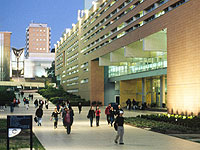Local Politics of Development - ARTS2752
Faculty: Faculty of Arts and Social Sciences
School: School of Social Sciences
Course Outline: School of Social Sciences
Campus: Sydney
Career: Undergraduate
Units of Credit: 6
EFTSL: 0.12500 (more info)
Indicative Contact Hours per Week: 3
Enrolment Requirements:
Prerequisite: 30 units of credit at Level 1
Equivalent: GLST2102
CSS Contribution Charge: 1 (more info)
Tuition Fee: See Tuition Fee Schedule
Further Information: See Class Timetable
Available for General Education: Yes (more info)
View course information for previous years.
Description
Subject Area: Development Studies
This course addresses some of the current questions and debates in development studies through the analytical lens of local politics. These include persistent problems of, poverty, inequality, and uneven resource distribution. It also helps you understand why, despite best intentions, many development interventions end up doing harm and create negative development outcomes.
This course complements the focus of ARTS2751 International Development, which explores the answer to these questions from an international perspective. In this course, we will analyse the dynamics within countries that are recipients of international aid, examining the role of local actors in development assistance, with a focus on the experiences of people living there.
Drawing on the interdisciplinary nature of development studies, this course explores how politics can create positive or negative environments for development depending on the context in which development assistance occurs, existing power and patronage structures, differential political and governance systems, as well as people’s agencies.
Focussing away from more top-down approaches, this course explores the concepts and practices of participatory development, local ownership, empowerment, state-society relations, democratisation and peace/state building.
It aims to help you understand the importance of context-sensitivity and teach you tools that help you in your analysis to learn from the individuals and communities seen as the recipients of international assistance.









